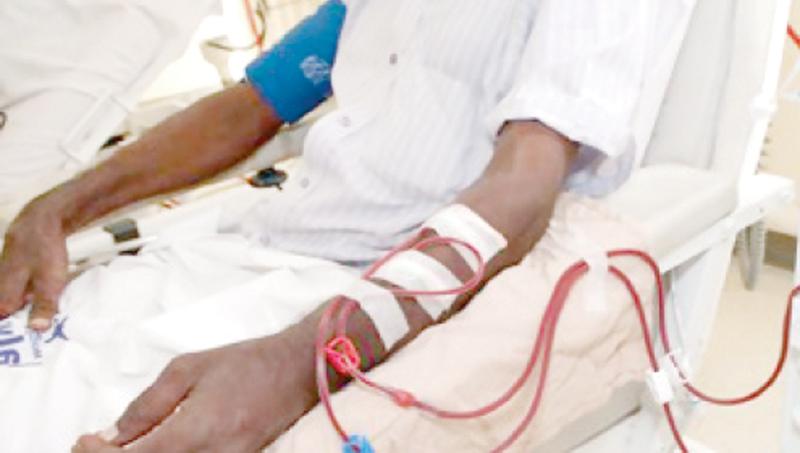
The use of water flowing from the hills, for paddy cultivation is the primary cause of Chronic Kidney Disease (CKD) in Sri Lanka, independent bio-medical scientist Dr. Kamal Gammampila says.
The scientist conducted research covering 3,000-3,500 sq km since September last year and concluded that farmers who used water flowing from the hills for cultivation, were prone to CKD. He has handed over his findings to government authorities. Dr. Gammampila said the authorities not oblivious of this cause have ‘allowed people to die like flies’.
It was widely believed that the use of glyphosate (a weedicide) was causing CKD, and as a result the government took measures to ban the chemical in 2015. Later in a gazette notification, dated July 11 last year, the ban was lifted.
Former Sri Lanka Tea Board Chairman Rohan Pethiyagoda said, “As far as medical literature was concerned there is no connection between glyphosate and CKD.”
He said that there were 600 cases where people used glyphosate to commit suicide, and ten of them died. “The survivors did not develop CKD. Then what is the proof that the weedicide is the real cause? All research is inconclusive.” He said that the tea industry suffered as a result of glyphosate ban.
Planters started to buy other chemicals, mostly illegal, but freely available in the market, in place of glyphosate to control weeds. The residue of these chemicals was detected in plucked tea leaves causing several countries to stop buying Ceylon Tea.
“The ban was a silly thing to do,” Pethiyagoda said, explaining that there were other countries that used glyphosate but didn’t fall prey to CKD. Meanwhile, the American Association for the Advancement of Science (AAAS) took steps to cancel the honouring of scientists Dr. Sarath Gunatilake and Dr. Channa Jayasumana who tried to link glyphosate with the CKD epidemic in the island.
The decision was made when other scientists criticised the AAAS for presenting awards for research that lacked basis. The two scientists were to receive AAAS’s 2019 Scientific Freedom and Responsibility Award.
